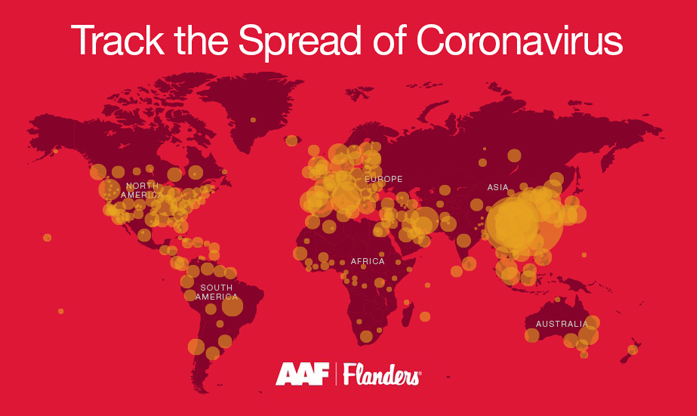
Because of our commitment to clean air, AAF Flanders® wants to arm you with information on this latest threat. This document is intended to serve as a reference on the 2019-nCoV outbreak.
However, for the most up-to-date news and updates, please visit the Centers for Disease Control and Prevention website at www.cdc.gov/coronavirus/2019-ncov/index.html or the World Health Organization website at www.who.int/emergencies/diseases/novel-coronavirus-2019.
Coronavirus COVID-19 Global Cases by Johns Hopkins CSSE
Case numbers updated as of this publication. For the most current case update, visit: www.arcgis.com/apps/opsdashboard/index.html
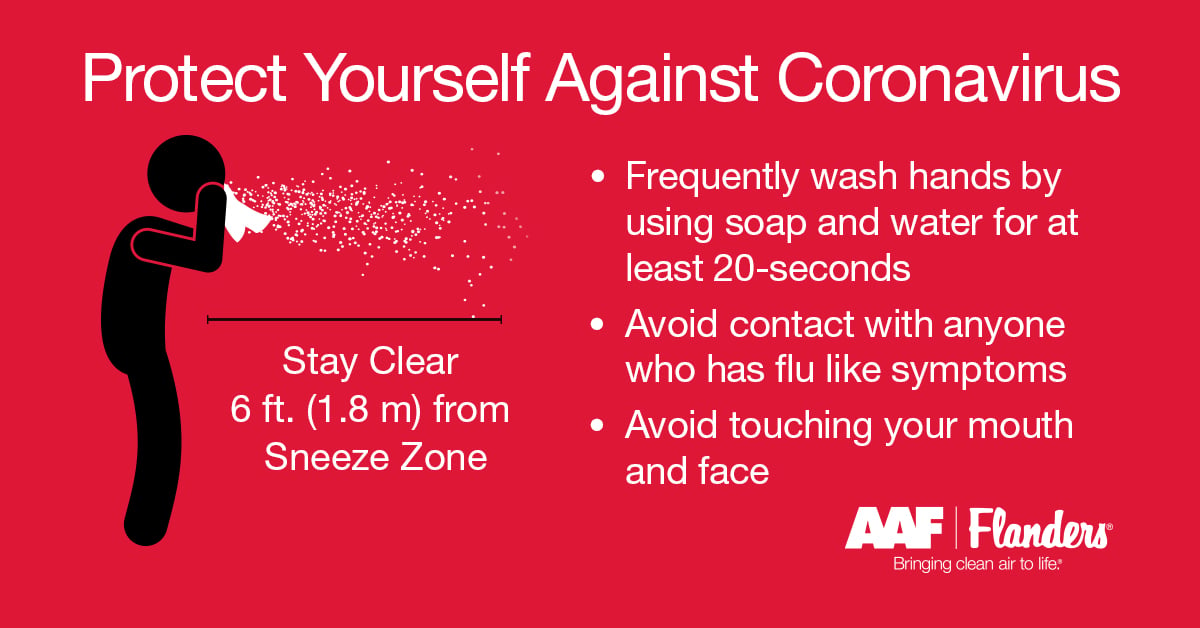
What precautions can be taken?
-
Stay at least 6ft. away from people who are sick.
-
Stay home when you are sick.
-
Seek medical care if you are coughing, sneezing, and running a fever.
-
Wash your hands often with soap and water for at least 20 seconds. If soap and water are not available, use an alcohol-based hand sanitizer with at least 60% alcohol.
-
Avoid touching your eyes, nose, and mouth with unwashed hands.
-
Cover your cough or sneeze with a tissue, then throw the tissue in the trash.
-
Clean and disinfect frequently touched objects and surfaces using a household cleaning spray or wipe.
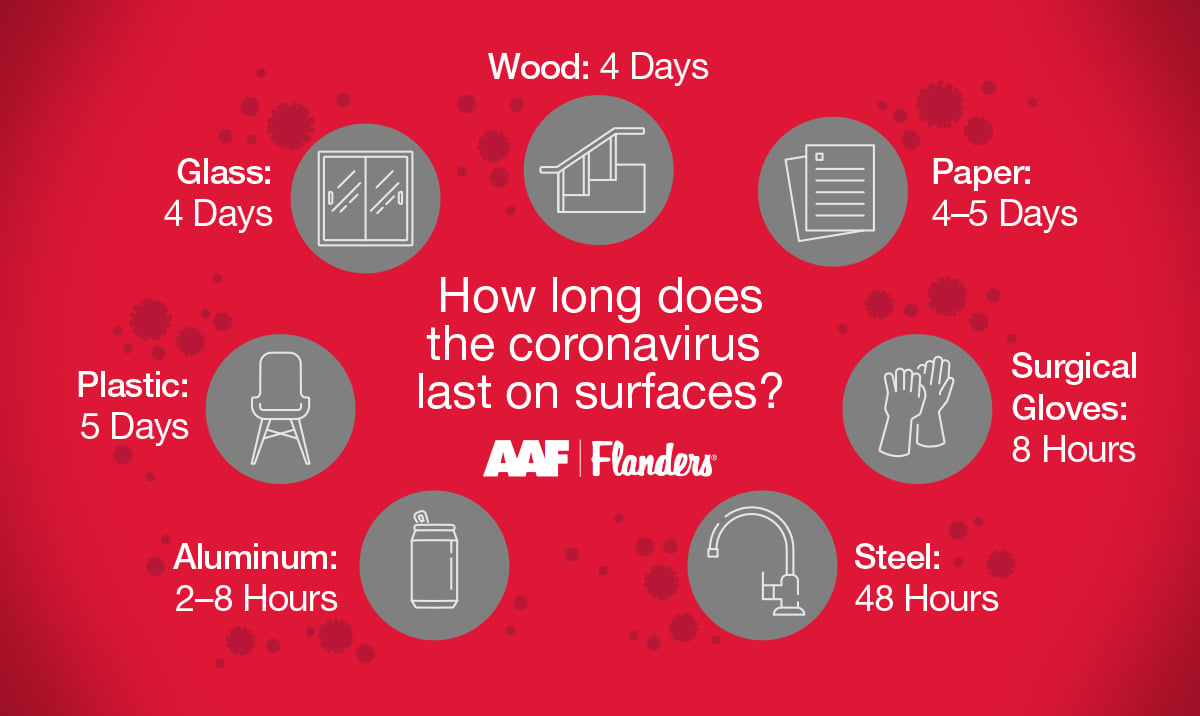
The Importance of Clean Air Environments
Airborne Contaminants in the Workplace
The U.S. Environmental Protection Agency (EPA) identified indoor air quality (IAQ) as one of
the top five most urgent environmental risks to public health. The air we breathe at home,
work, and school may contain a variety of contaminants, such as bacteria, pollen, and viruses.
An extensive body of scientific evidence demonstrates that short- and long-term exposure to
fine particle pollution negatively affects the cardiovascular system. Poor IAQ are commonly
associated with improperly operated and maintained heating, ventilating, and air conditioning (HVAC) systems.
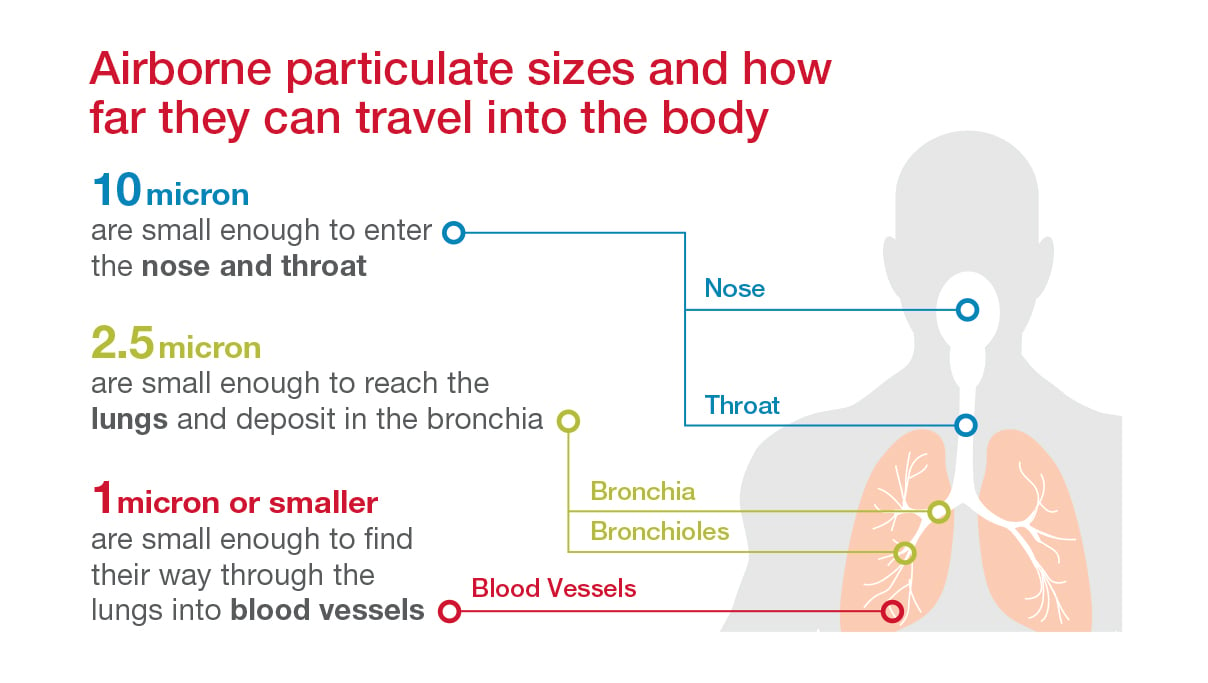
Indoor Air Quality
The world’s leading health-related organizations consider PM10, PM2.5, and PM1 fine dust fractions as the most important and dangerous for humans.
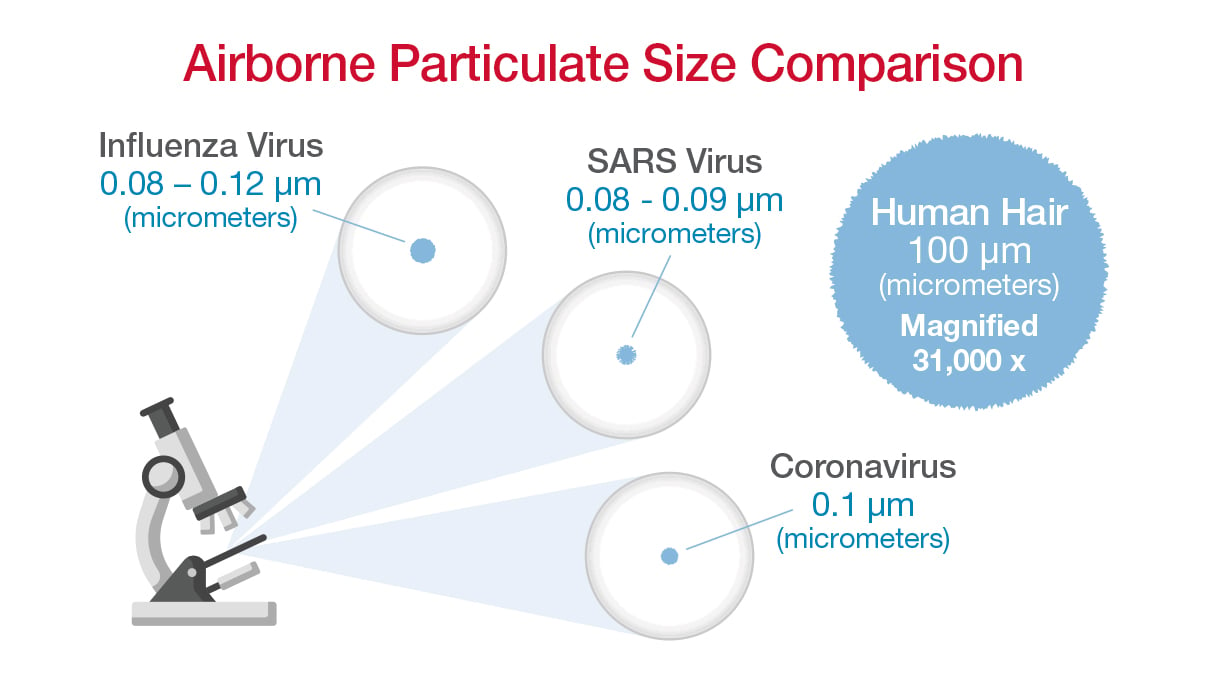
Particulate Size and Air Filtration
Our ability to measure and identify particulate and airborne molecular contamination changes the way we think about air filtration. Because these particles are so small, viruses and other contaminants can penetrate deep into the lungs and bloodstream, where they pose a grave threat to human health. Fortunately, proper air filtration has been proven to reduce the spread of viruses and other contaminants. For example,
research has demonstrated that appropriate air filtration limits the pass-through of virus particles, which frequently hitch a ride on larger particles, into downstream areas.
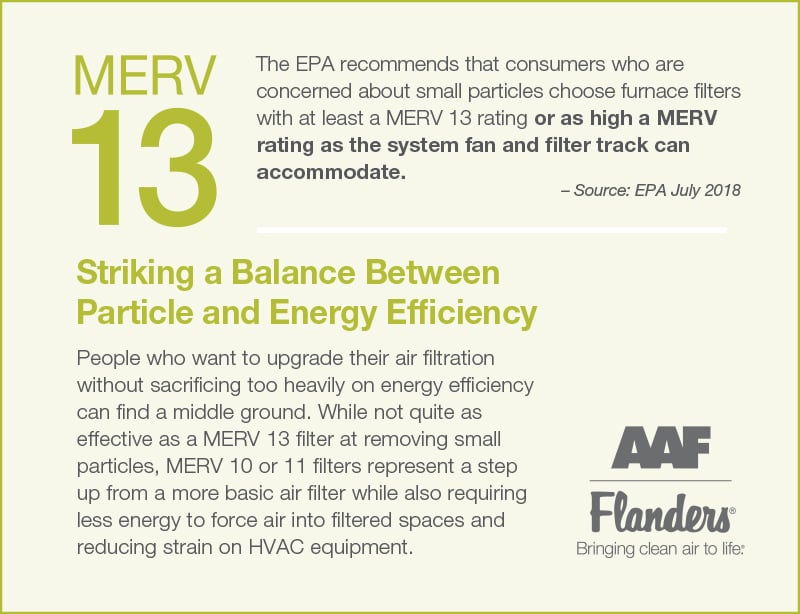
Click here to learn more about MERV13 air filters.
Filter media as masks
With the onset of the COVID-19 pandemic, AAF Flanders is focused on supplying filters to essential businesses, including healthcare and pharmaceutical industries. While some of the higher grade filter media ( ≥ 95%) AAF Flanders utilizes could potentially be used in respiratory protective devices, this manufacturing would require qualification by The National Institute for Occupational Safety and Health (“NIOSH”). AAF Flanders manufactures air filtration products and equipment for specific applications and processes. AAF Flanders is not a respiratory protective device manufacturer. The media used in our products is not designed, specified, or tested to be utilized in respiratory protection devices. AAF Flanders expressly prohibits the modification or use of our products in any manner for which it was not designed and specifically disclaims any liability, claims, or damages whatsoever arising out of or connected with the misuse of our products. For information regarding Respiratory Protective Devices, please refer to 42 CFR Part 84.




Leave a comment